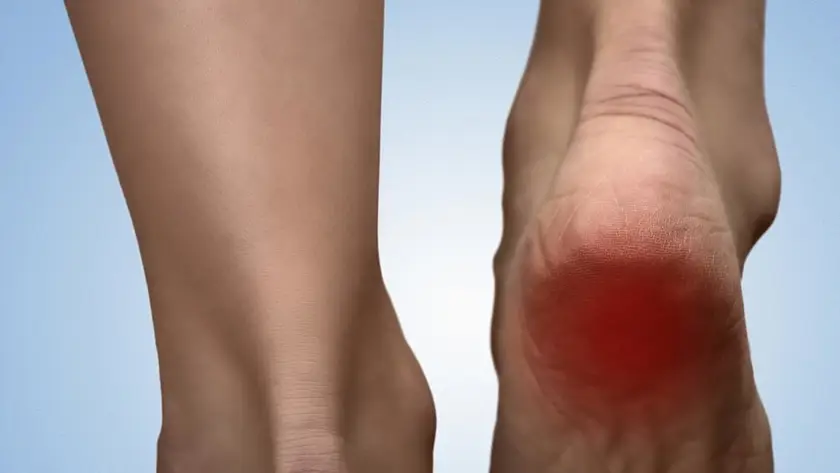Chronic heel pain
Heel pain can interfere with your ability to exercise or even just get around. If it doesn’t go away on its own, you may need professional treatment to deal with it.
There are a number of possible causes and even more options for treatment. Here is what you need to know about what causes heel pain and how to manage it.
Chronic Heel Pain Causes
One of the most common causes of heel pain is plantar fasciitis. This is an inflammation of the tissue that runs along the bottom of your foot. One way to help identify it is that the heel pain will be on the bottom of the heel and tends to be at its worst during your first few steps in the morning.
Another common cause of heel pain is Achilles tendinitis. This condition involves inflammation of the Achilles tendon, which runs down your lower leg to your heel. Similar to plantar fasciitis, the pain tends to be at its worst in the morning, but the pain will focus on the back of the heel.

Some other possible causes for heel pain include:
- Heel spur
- Stress fractures
- Bone tumor
- Arthritis
Relieving Chronic Heel Pain
To get some relief from your heel pain, there are some simple remedies you can try.
- Give it a rest: Try to avoid activities that put excess strain on your heels, such as running or standing for long periods.
- Apply ice: Put an ice pack on your heel for up to 20 minutes at a time, three times daily.
- Take an Aspirin: Over-the-counter anti-inflammatory drugs are effective at relieving the most common forms of heel pain.
Chronic Heel Pain Treatment
While sometimes heel pain can go away on its own or with the simple remedies listed above, other times it can be more stubborn. If you’ve been dealing with heel pain for several weeks or longer, it may be a sign of an issue that needs treatment.
In those cases, getting professional help is the best way to uncover the cause of your heel pain, solve it, and prevent it from coming back.
Some of the options for treatment include:
Prevention of Chronic Heel and Foot Pain
Once you get some relief from your heel pain, you’ll probably want to know everything you can do to keep it from coming back. Here are some tips:
- Ensure your footwear fits properly, replace your shoes before the cushioning wears out, and consider getting some orthotic insoles.
- Lose excess body weight to reduce the amount of stress on your heels.
- Take the time to properly stretch and warm-up before exercise.
Dealing With Chronic Heel Pain? Here Are Some Ways You Can Get The Pain Under Control – FAQs
What does it mean when your heels hurt all the time?
There are many possible causes for heel pain. The only way to know for sure what caused it is to visit a doctor.
Is heel pain a sign of cancer?
Yes, in rare cases, heel pain can be a sign of cancer. That’s because cancer can sometimes cause a painful lesion on the heel bone. However, there are many other causes for heel pain that are much more likely. See a health care professional for a thorough analysis of your pain.
When should you see a doctor for heel pain?
There are a few symptoms that can be signs that your heel pain is caused by a serious health condition and is not going to go away on its own. If you have any of these symptoms, you should see doctor:
- Severe pain and swelling
- Severe pain following an injury
- Fever
- Being unable to walk normally
- Being unable to bend your foot downward or rise up on your toes
